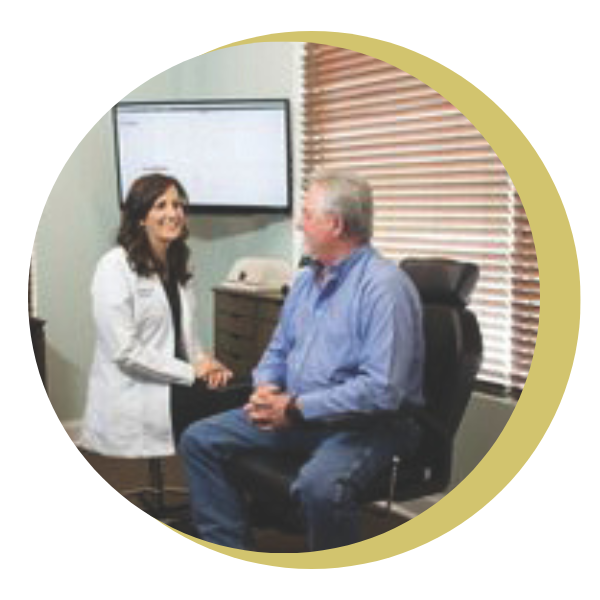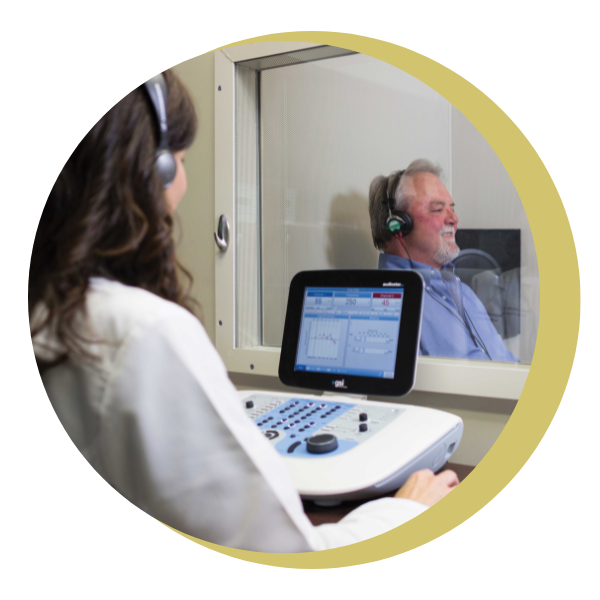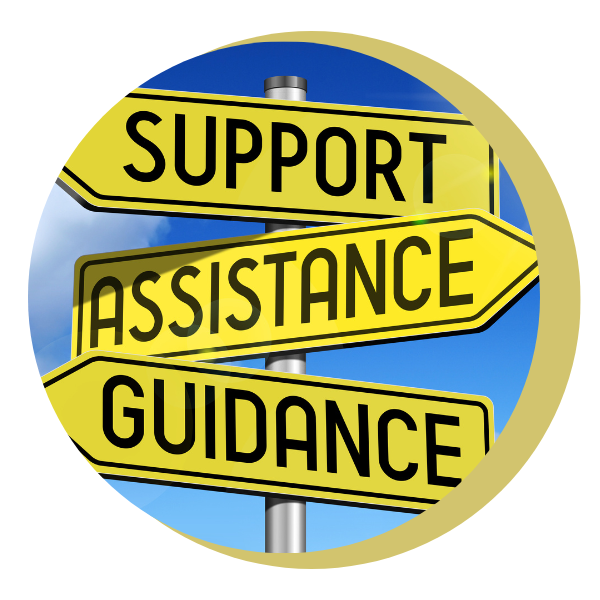Cochlear Implants:
For Hearing Aid Wearers Who Are Still Struggling To Hear
Register for the Cochlear Implant Virtual Information Session for Middle Tennessee Health Care Professionals
We cordially invite you to join us on Thursday, December 4 for a Zoom
session led by Johnson Audiology's Dr. Catherine Laney. Dr. Laney will offer
information on cochlear implant opportunities in the Middle Tennessee area and
outline the FDA's recent approval of expanded indications for cochlear implant candidacy.
Complete the form below to register for the Zoom session.

Thank you for contacting us.We’ll get back to you as soon as possible.
We got it.
What About When Hearing Aids Are Not Enough?
Do you have patients who consistently wear their hearing aids, but their hearing has worsened to the point they still struggle to hear? If so, the patient may be a candidate for a cochlear implant.

Cochlear implant initial consultation
Johnson Audiology offers cochlear implant (CI) consultation appointments to answer patients' questions and explain the CI process. Those interested in cochlear implants need to be aware that U.S. Food and Drug Administration (FDA) sets specific standards that audiologists and ENT surgeons must follow to determine a person's candidacy for CI. A patient cannot self-determine candidacy.

Cochlear implant candidacy evaluation
The patient's hearing is tested with a key component being the patient's ability to understand speech. The evaluation is conducted with and without hearing aids. CI is for those who do not get adequate benefit from traditional hearing aids. When FDA guidelines are met, the door is open for the person to move forward with cochlear implantation.

How does the surgical referral process happen?
For patients who have been tested and meet the FDA guidelines for cochlear implantation, Johnson Audiology will make a referral to an ENT surgeon in the region who performs CI surgery. Cochlear implant surgery is routine and is typically performed under general anesthesia. On average, the surger takes around two hours.

What about insurance approval?
Insurance varies on coverage for initial candidacy assessment and testing that Johnson Audiology performs. If a person's insurance plan covers costs for testing then the Johnson Audiology team will file with the patient's insurance . In terms of insurance coverage for the surgical implantation component of the CI journey, the office of the surgeon performing the procedure will file with insurance on behalf of the patient.

Activation day
Cochlear implant activation occurs about three to four weeks after surgery, when the surgical site has had time to heal. Some ENT practices prefer to do their own activation, but Johnson Audiology's two CI audiologists also are qualified to activate the device.

Ongoing support
Patients with cochlear implants can receive ongoing support from Johnson Audiology. This would include aural rehabilitation information in the time immediately following activation, device troubleshooting, routine supplies as well as mapping, which is the process of adjusting the settings on a cochlear implant's external speech processor so a user can hear sounds optimally, converting acoustic sounds into electrical signals that stimulate the auditory nerve. Johnson Audiology seeks to be a patient's lifelong partner on the CI journey.
How Hearing Loss Changes the Brain
Studies have found that hearing loss triggers neuroplasticity, the brain's ability to reorganize itself. When the brain stops receiving normal levels of sound, it compensates by recruiting other senses—like vision—to fill in the gaps. This shift rewires neural pathways in the auditory cortex and other areas of the brain.
Mild Hearing Loss = Measurable Brain Change
Research from the University of Colorado Boulder's Brain and Behavior Laboratory found that even mild sensorineural hearing loss (SNHL) causes the brain to reorganize—and these changes begin quickly, not just after years of hearing decline.
Conversely, the researchers have found that devices for amplification—be that hearing aids or cochlear implants—cause a reverse of that re-organization either in full or in part.

Start with a Hearing Evaluation
If your patient reveals to you greater difficulty in hearing even with properly fit hearing aids or you notice the patient struggling as you try to communicate, send the person to get tested and to discuss cochlear implantation as an option.
